Facebook has relaxed new restrictions on cryptocurrency-related advertising
A few weeks ago, Facebook relaxed its ban on cryptocurrency-related ads. At the same time, the company has also developed some new rules for such advertising.
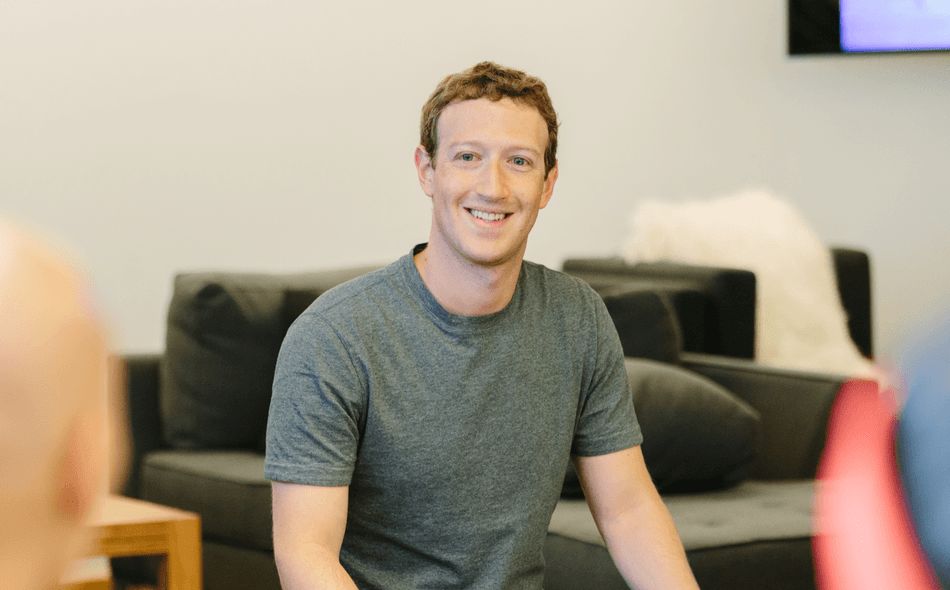
Facebook said that "whether or not it trades on a public stock exchange," encryption companies must produce "their licenses and other relevant public background information" before they can advertise their products and services on Facebook's social network.
However, Facebook still bans ads specifically for ICO or binary options. Binary options only consider whether the price of the underlying items such as stocks and foreign exchange exceeds the option execution price for a certain period of time in the future, irrelevant to the degree of price increase or decrease. As a result, such transactions are vulnerable to price manipulation and are expressly prohibited in many countries.
Facebook said it had previously banned all cryptocurrency-related ads to avoid mis-promoting financial products and services that were "misleading or fraudulent."
John DeCleene, a co-fund manager at OCIM, an investment firm, says the latest loose rules will help boost the blockchain industry while eliminating inferior market participants.
"Cryptocurrencies are only allowed to advertise through heavy screening," he said. In this case, only high-quality encryption projects can gradually come into the public eye. Conversely, public awareness and attitudes towards crypto assets will be significantly improved. He stressed that these high-quality encryption projects often have reliable use cases, tracking records, and development teams.
Incidents related to fraud and hacking have left the public in the air. From January to July this year, a total of $731 million was stolen from cryptocurrency transactions, with the two most costly hacking attacks occurring in Asia. Japan's Coincheck and South Korea's Coinrail, two cryptocurrency trading platforms, lost $500 million and $40 million, respectively.
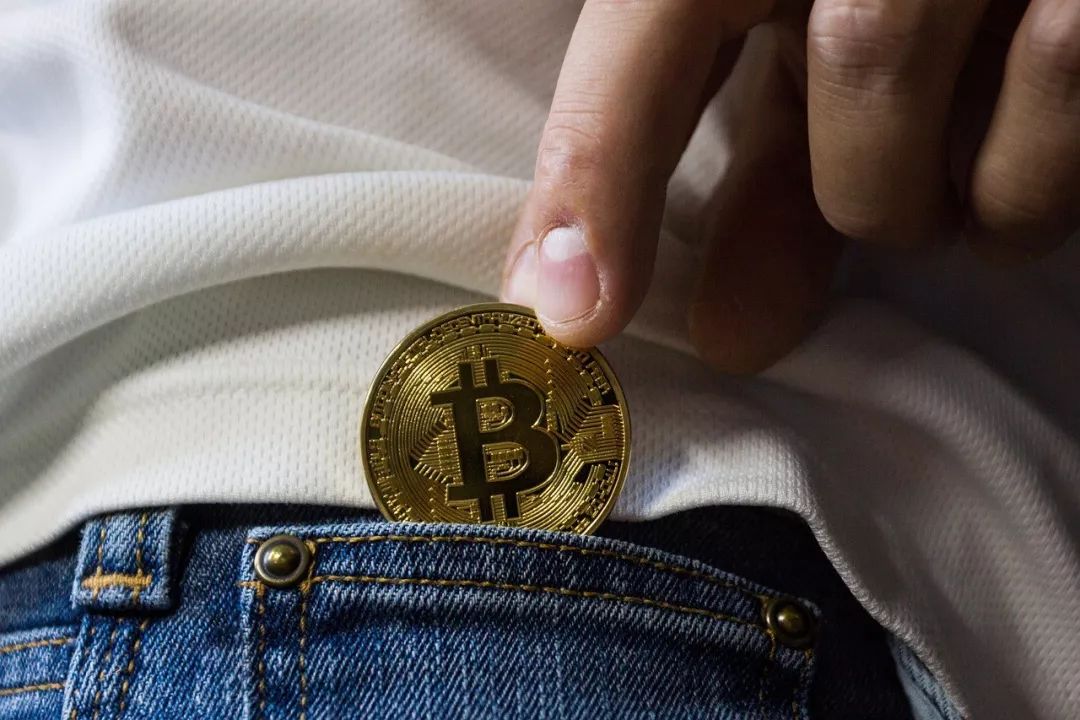
Photo source: Pixabay Picture Library
Only legitimate companies can advertise
Dating apps Viola.Ai using blockchain technology. Explaining how Facebook's advertising app works, Violet Lim, the company's co-founder and CEO, said the social network would first access an advertiser's account to check if it was legitimate before approving any ads for encryption programs. The platform will then examine the cryptocurrency company's operating license and conduct a background check on the company. The whole process can be described as a lot of screening, rigorous and meticulous.
"This inspection has raised the standard of advertising production and the standard of employment across the encryption industry," says Violet Lim. "
DeCleene added: "I believe that well-developed companies will be the biggest beneficiaries." "
According to estimates by the Fire Coin Institute, 20 million people gained access to blockchain services over the network in 2017. This figure represents only 0.5% of the total number of Internet users worldwide. Compared to Facebook's more than 2 billion users, it's nothing short of a witch.
By advertising on Facebook, blockchain companies have access to the social network's vast user base, even those who know nothing about the technology.
Not all companies want to advertise on Facebook
Rate, a cross-border payments company, does not intend to attract more customers by posting ads on Facebook. Instead, Jake Goh, the company's co-founder and CEO, said the company would use Facebook as a platform to maintain existing users and recruit more employees, including blockchain engineers and community managers.
Goh points out that some encryption companies are already active on other social media platforms such as Twitter, Telegram, the blog portal Medium and the forum Reddit. This means that Facebook may not be a very important advertising channel for these companies.

Rate co-founder and CEO Jake Goh
For your own service?
Celine Xiao, a blockchain analyst at fire-money research institute, speculates that "Facebook is trying to build its understanding of the blockchain industry, and the first ban may be a stopgap measure." "After all, the US company has begun to explore how to leverage the technology on its platform.
As one of the world's tech giants, Facebook "can't turn a blind eye to blockchain technology." "Encryption and blockchain technologies generally go hand in hand and complement each other," DeCleene notes. So if Facebook does decide to ban crypto-related ads, the company will be abandoned by the times as more and more companies begin to adopt blockchain technology. "
Celine Xiao adds that the technology company needs to understand how blockchain works before it can manage advertising "more meaningfully."
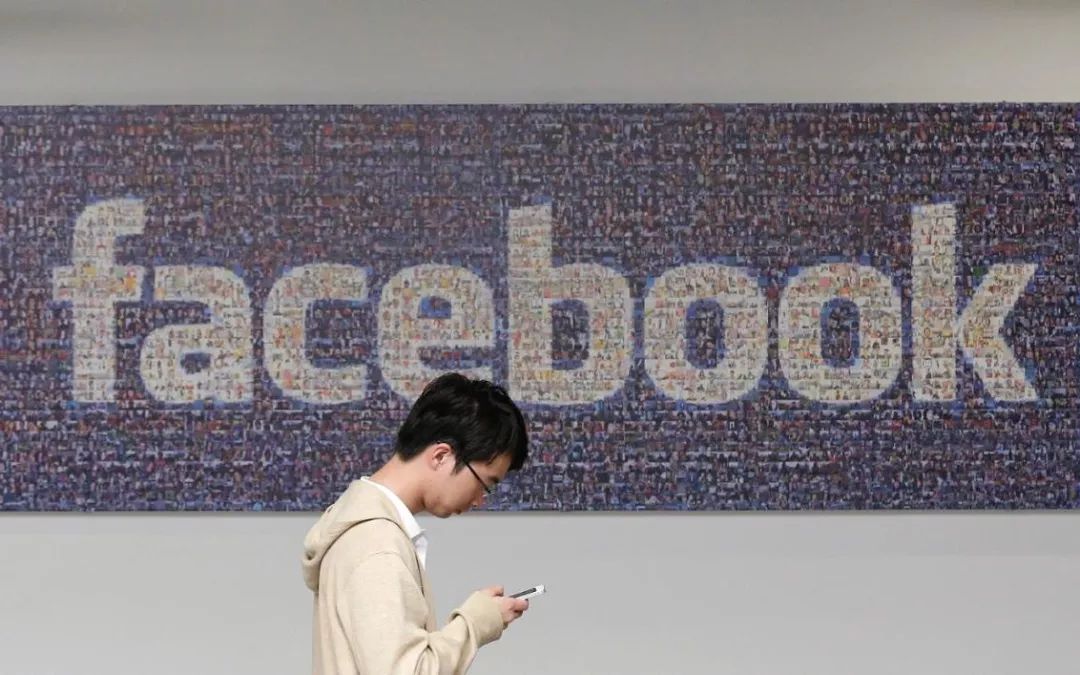
Photo credit: AP, Telegraph
Given the growing cryptocurrency market, allowing more crypto ads will also help Facebook boost its advertising revenue, Xiao said.
ICO advertising is still prohibited
However, because the ICO area is often unregulal, Facebook still bans such ads.
Xiao says banning advertising about ICO is a wise decision. "The ICO market is not mature enough and needs to be controlled by Facebook. Participants in the ICO field also need to use their in-depth technical knowledge to evaluate specific projects performing ICO. "
In addition, because Facebook caters to mainstream users, experts believe it also has a responsibility to educate its users about cryptocurrencies.
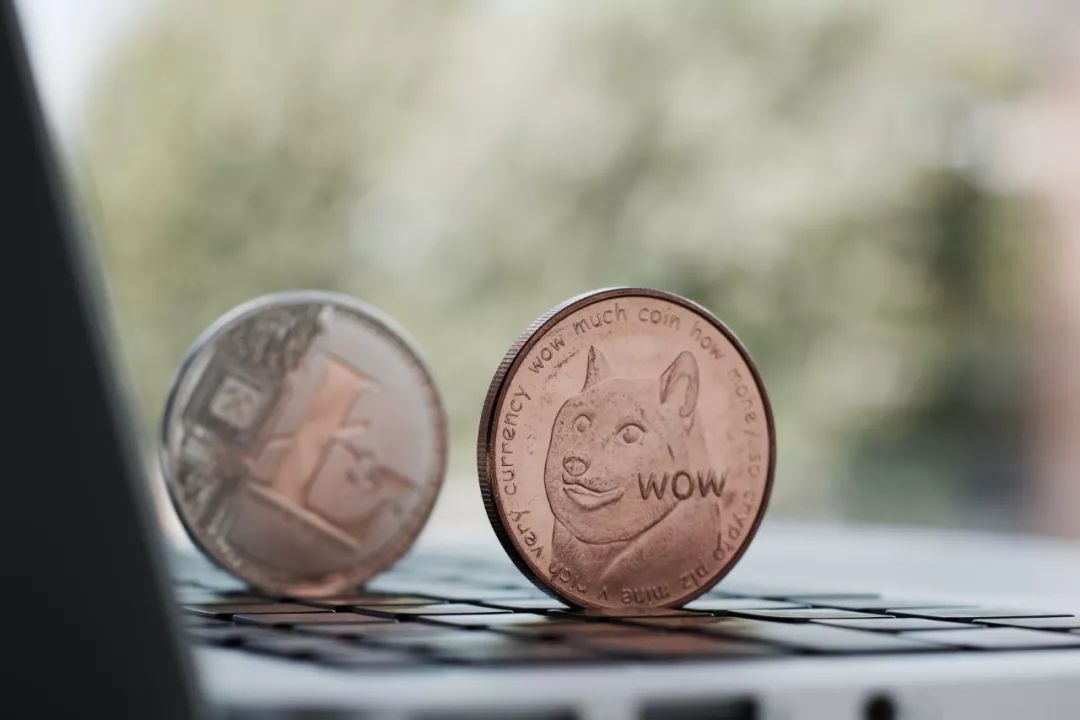
Picture: Adriantoday
"Many users still don't know anything about these emerging technologies," says DeCleene. They don't know the difference between Bitcoin and blockchain, and many of them still see Bitcoin as an indicator of the crypto market, representing the direction of the entire crypto market. Because Facebook is widely seen by the public as a technology pioneer, the responsibility for user education rests more with the social network. "
DeCleene added that Facebook should clearly list the terms and conditions that these start-ups can publish and ensure that they adhere strictly to the rules.
Cryptocurrency startups must know why Facebook has not lifted its ban on ICO advertising.
"We believe that ICO-related advertising should continue to be banned or subject to more censorship," Goh said. Many of these ads are slightly misleading. "
"We respect Facebook's decision," Lim said. These initiatives are also designed to minimize potential fraud and protect user rights. "
However, Lim believes cryptocurrencies will continue to exist and continue to grow until they become the norm. It's only a matter of time. "While encryption is still in its infancy and much more needs to be done, it is definitely a growing industry that will one day add to human life."(Author: Yuko Teru)
Learn moreFacebookKnowledge, send"Facebook"Give you the latest article on mob whale out to sea planning!"
This article was edited and published by jqyjr
Recommended reading
Prop charges are no longer the only survey that shows game-inspired video advertising revenue has increased dramatically
Talk to a number of well-known companies in Indonesia, Chinese companies go out to sea how to deep into this emerging market
Facebook's industry-wide TOP10 advertisers released an analysis of global mobile ad delivery trends in July
What are the new trends in Q2's list of the world's most popular mobile apps, hand games and publishers in 2018?
All-round docking of local resources in the Indonesian market for entrepreneurs, beluga whale out to sea 2018 China-India Internet Summit successfully concluded
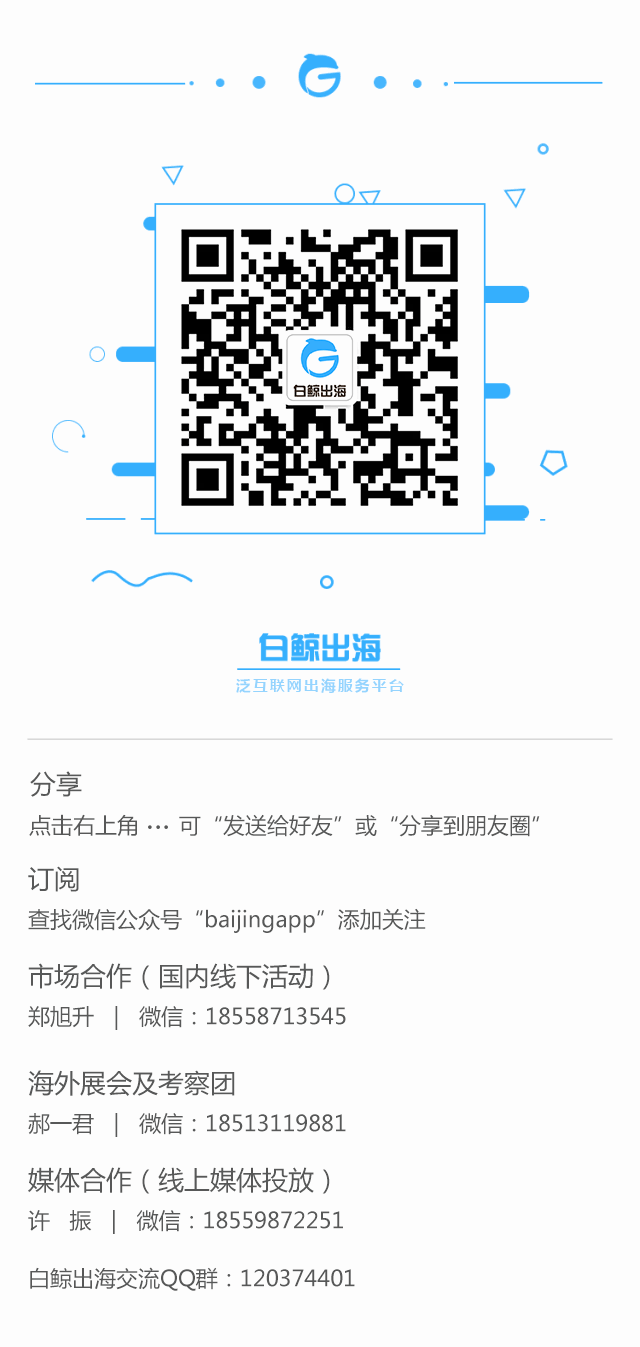
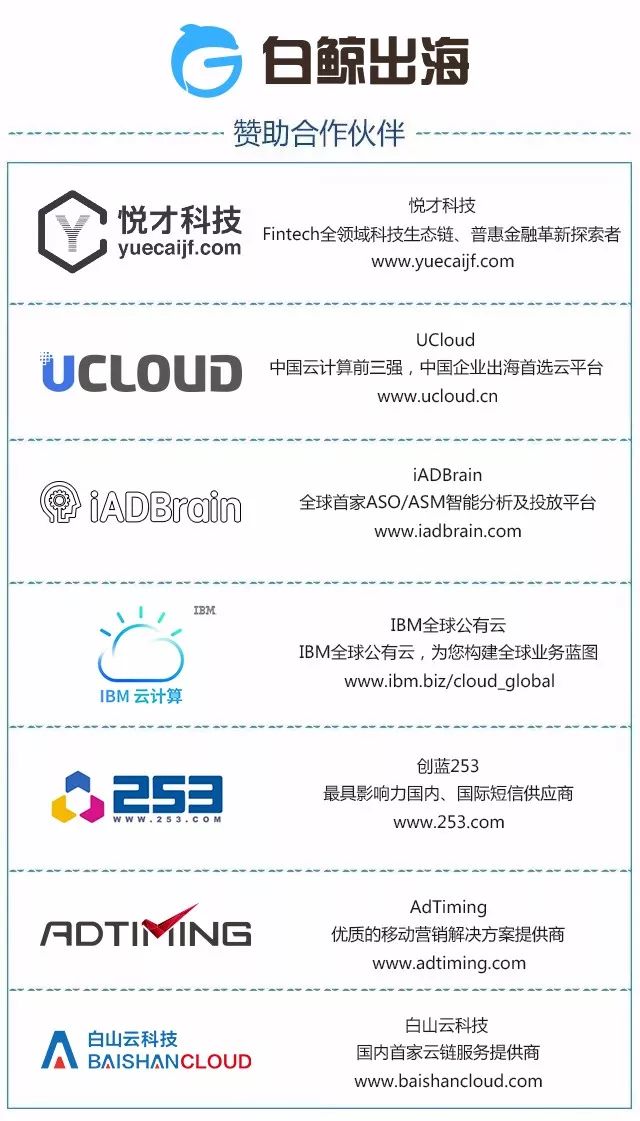

Send to the author